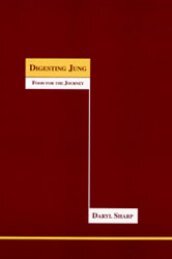Personality types: Jung's model of typology - Inner City Books
Personality types: Jung's model of typology - Inner City Books
Personality types: Jung's model of typology - Inner City Books
- No tags were found...
You also want an ePaper? Increase the reach of your titles
YUMPU automatically turns print PDFs into web optimized ePapers that Google loves.
Concluding Remarks 97owy —primitive and unadapted—but not be able to call it upwhen it's needed. I may know that feeling is required in a particularsituation but for the life <strong>of</strong> me can't muster it. I want toenjoy the party but my carefree extraverted side has vanished.I may know I'm due for some solitary introversion, but thelure <strong>of</strong> the bright lights is just too much.The shadow does not necessarily demand equal time withthe ego, but for a balanced personality it does require recognition.For the introvert this may involve an occasional night onthe town—against one's "better judgment." For the extravert itmight involve—in spite <strong>of</strong> oneself—an evening staring at thewall. In general, the person whose shadow is dormant givesthe impression <strong>of</strong> being stodgy, lifeless. Typologically, thisworks both ways: the extravert seems to lack depth; the introvertappears socially inept.The introvert's psychological situation is laid bare in FranzKafka's poignant observation:Whoever leads a solitary life, and yet now and then wants toattach himself somewhere; whoever, according to changes inthe time <strong>of</strong> day, the weather, the state <strong>of</strong> his business and thelike, suddenly wishes to see any arm at all to which he mightcling—he will not be able to manage for long without a windowlooking on to the street. 118Similarly, the extravert may only become conscious <strong>of</strong> theshadow when struck by the vacuity <strong>of</strong> social intercourse.There is a balance between introversion and extraversion,as there is between the normally opposing functions, but itrarely becomes necessary—or even possible—to seek it out,until and unless the conscious ego-personality falls on its face.In that case, which happily manifests as a nervous breakdownrather than a more serious psychotic break, the shadow118 "The Street Window," in The Penal Colony, trans. Willa and EdwinMuir (New York: Schocken <strong>Books</strong>, 1961), p. 39.










